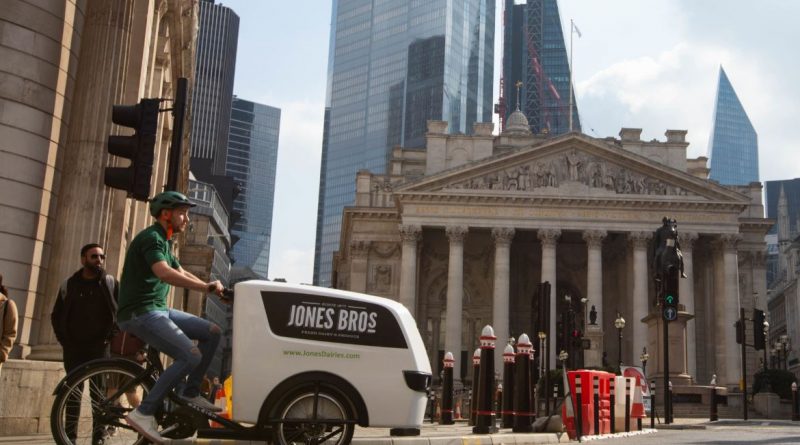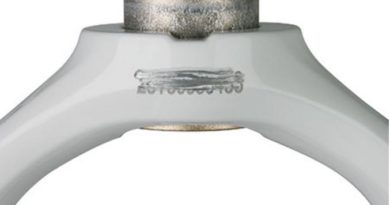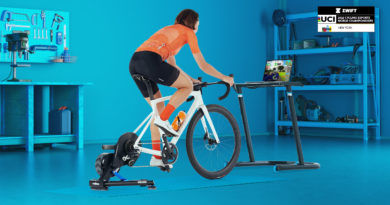ULEZ scrappage scheme will subsidise switch to bikes
The Mayor of London’s office has today confirmed that bike, cargo bike, eBike and even electric scooter users will benefit from subsidies as part of the ULEZ scrappage scheme, launched in detail today.
The £110 million fund is set aside for to assist those on lower incomes, disabled Londoners, charities, sole traders and business with ten or fewer employees to replace or retrofit their old, polluting vehicles. Londoners able to access the fund will benefit from discounts on subscriptions, rentals and purchases of bicycles, eBikes, cargo bikes, cars and vans from partners.
Companies from in and around the bike industry taking part include Brompton, Bikeworks, Cake, Fully Charged (who explain the process here), Humanforest, Larry vs Harry (Bullitt), Lime, Paradise Cycles, Peddle my Wheels, Tern Bicycles, Tier, Volt and Santander Cycles. Furthermore, electric scooter share schemes Lime, Dott and Tier will all offer discounted and free rides to Londoners that successfully qualify and apply to the scheme, in addition to grants from TfL.
Dan Parsons, Co-Founder and Head of B2B at Fully Charged said: “Since 2014, we at Fully Charged have had the mission to better the lives of Londoners through cleaner transport solutions for individuals, families and businesses – and we welcome the expansion of the ULEZ. Working with our industry-leading e-bike and electric cargo bike suppliers, we are excited to support the TfL scrappage scheme as a way to further encourage and incentivise the transition to greener transport and better air quality to benefit all of London.”
The expanded ULEZ zone will go London-wide from August with the objective to clean up air for five million more in the city. The modelling outlines that the expansion is likely to lead to a 2% reduction in car use, save 362 tonnes of NOx emissions, compared to 230 tonnes saved by the central ULEZ and cut further into PM2.5 exhaust emissions.
The city’s polluted air is believed to contribute to as many as 4,000 premature deaths annually, as well as driving up the rates of lung disease, dementia, asthma and cancer.
The ULEZ has already been successful in central and inner London, helping reduce roadside pollution levels by 44 per cent in central London and 20 per cent in inner London compared to a scenario without the ULEZ and its expansion.
The scheme is designed only to drive down the use of the most polluting vehicles and stats from the Mayor’s office indicate that already 94 percent of vehicles seen driving in inner and central London, and 85 per cent of vehicles seen driving in outer London meet ULEZ standards and thus have nothing extra to pay.
In order to gain from the scrappage scheme charities, sole traders and business with 10 or fewer employees registered in London can apply to scrap a van (£5,000 grant) or a minibus (£7,000 grant), retrofit certain vans or minibuses (£5,000 grant) or scrap and replace a van or minibus with a fully electric vehicle (£7,500 or £9,500 grant respectively).
Jim Blakemore, Founding Partner, Bikeworks said: “We’re a not-for profit social enterprise, using bikes to deliver services as well as delivering cycle training to adults and schoolchildren. We had a diesel van that we used for moving bikes around – it was intermittently working and we wanted to upgrade to a less polluting and more efficient van. I’d heard of the ULEZ scrappage scheme and applied. It was incredibly simple: as soon as we’d officially scrapped the old van, we could claim the money and we bought a brand-new Euro VI van – and it works wonderfully.”
The ULEZ penalty charge notice for those flouting the rules will increase from today to £180 (reduced to £90 if paid within 14 days). Vehicles that do not meet the standards must pay the £12.50 daily charge.
Cycling and Walking Commissioner Will Norman suggested back in December that the scrappage scheme would incentivise cargo bike use, with Eva Neitzert of Just Economics pointing out major cost savings per mile against a van. Her figures had cargo bikes costing just £0.026 pence per mile to run, versus £0.66 pence for a van.



